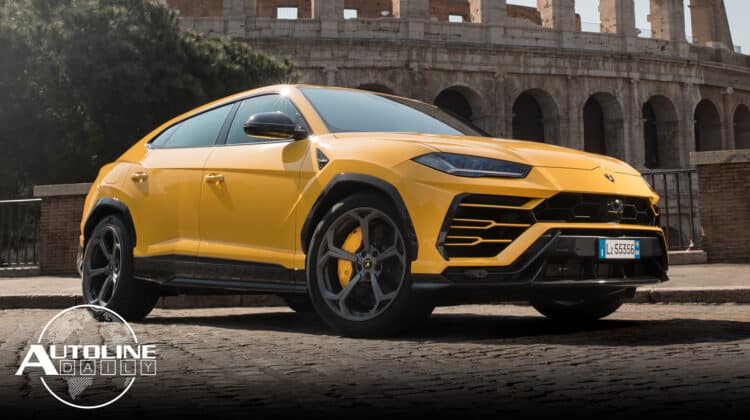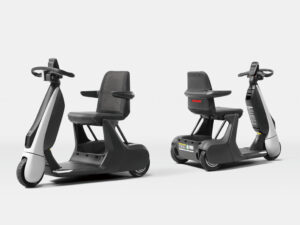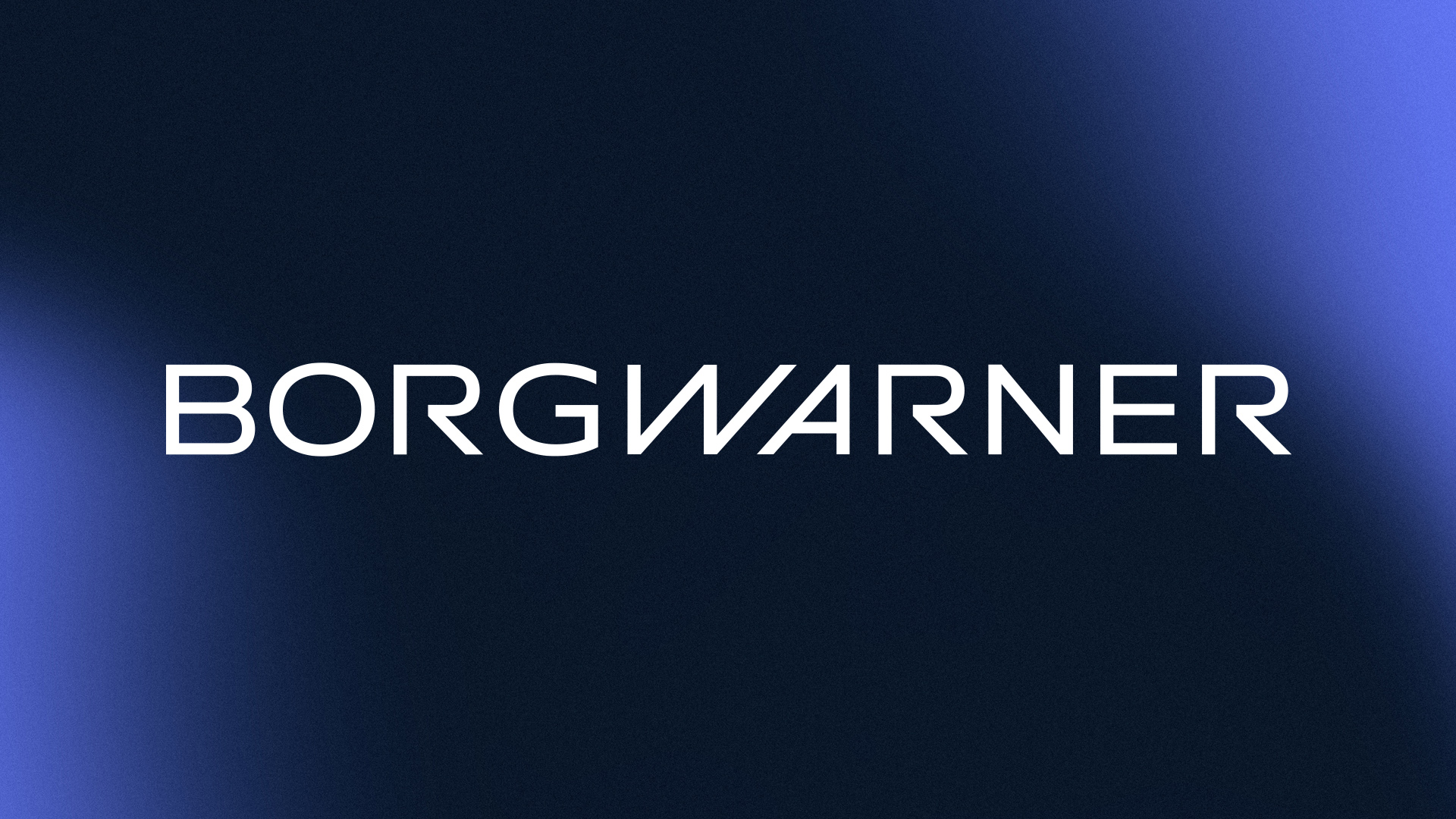
Listen to “AD #3529 – Lamborghini’s Profits Skyrocket; Problems with Cell-To-Pack; Premium Gas Gets More Expensive” on Spreaker.
Follow us on social media:
Runtime: 10:05
0:08 Euro 7 Gets Industry Pushback
1:16 Lamborghini’s Profits Skyrocket
2:19 Autoline Cracks 100,000 YouTube Subscribers
3:35 Toyota Building Wheelchairs
4:41 FSD Gets Another Update
5:34 Problems with Cell-To-Pack
7:11 Stellantis Builds Plant in Africa
7:45 Congress Unhappy with Biden’s IRA Mods
8:59 Premium Gas Gets More Expensive
Visit our sponsors to thank them for their support of Autoline Daily: Bridgestone, Intrepid Control Systems, and Schaeffler.
This is Autoline Daily, the show dedicated to enthusiasts of the global automotive industry.
EURO 7 GETS INDUSTRY PUSHBACK
Last week we reported how Germany and Italy are starting to push back against an EU ban on IC engines after 2035. Now, we’re seeing push back against the latest ICE emission standards that are about to go in place. Those standards are called Euro 7 and they really tighten up NOx emissions. If Euro 7 is allowed to proceed Skoda says it will have to close a plant and lay off 3,000 workers, which in turn will take down another 7,000 jobs at supplier companies. Daimler Truck says the tougher standards will cost them billions. And on another front, the Dutch oil company Shell says it will work on reducing its greenhouse gas emissions, but it’s not going to set ambitious goals to reduce the emissions from the people and companies that use its products. And all of a sudden, some parts of Europe, which was leading the global charge against climate change, seems to be having second thoughts about how fast and how hard it needs to push.
LAMBORGHINI’S PROFITS SKYROCKET
That may make it seem like the world may be going to hell in a handbasket but things have never been better for Lamborghini. It sold 9,233 cars last year, an all-time record. It brought in more than €2 billion in revenue for the first time ever, which is double what the company did as recently as 2017. Its operating margin was 25.9%, an industry record. And its operating income shot up 56%, which is the 5th year in a row that it’s gone up. Lambo’s CEO Stephan Winkelmann, and its CFO Paolo Poma patted each other on the back for a job well done, but it looks to us like the credit really goes to the Urus–Lambo’s first SUV, which accounted for 58% of all sales. And that should forever put to rest the question about why a sports car company should ever build an SUV.
AUTOLINE CRACKS 100,000 YOUTUBE SUBSCRIBERS
And now we’ve got some news of our own to report about. As many of you have already noted in the comments, we recently passed 100,000 subscribers on YouTube. And when you do that they send you a metal plaque and a congratulatory letter from their CEO. Getting over 100,000 subscribers is quite an achievement. We’re grateful for that recognition from youTube, but more so for having so many of you follow our reporting, analysis and coverage of the global automotive industry. And this only inspires us to do even more. Thank you.
TOYOTA BUILDING WHEELCHAIRS
Toyota is studying two global megatrends: micro-mobility and aging populations. So it’s expanding its small mobility lineup in Japan. It already offers an electric 3-wheeled scooter, called the C Walk T, and a tiny EV, called the C Pod and now it’s launching what is basically an all-electric wheelchair, called the C Walk S. Aimed more at Japan’s aging population the C Walk S weighs 58 kilograms or about 128 pounds and features two electric motors that allow it to travel up to 6 km/h, which is roughly walking speed. With a removable 13.2 Ah or 0.33 kWh battery pack, the C Walk S can go up to 12 km or just under 7.5 miles at that pace. It costs about $3,800 and is actually sold alongside Toyota’s cars in dealer showrooms as well as separate rental and leasing stores.

Tesla is getting a lot of criticism of its Full Self Driving technology. Elon Musk promised it would reach full autonomy two years ago. But while that hasn’t happened, Tesla hasn’t given up. It is slowly starting a broader rollout of a new version of FSD Beta that was supposed to launch last November. The latest version 11 will be a big deal to users because it uses many new neural networks. It also merges Autopilot software which is mainly used for highways, with the FSD software, which is mainly used for surface roads and city streets. The update started going out to the roughly 400,000 Tesla owners who are approved for the FSD Beta program, which is reported to be almost everyone that paid for the package, which now costs $15,000.
PROBLEMS WITH CELL-TO-PACK
According to insurance experts, insurance premiums for EVs are going to keep going up. That’s because automakers won’t share data on battery packs that are only slightly damaged in collisions. And it’s because those packs are not easy to repair. So if an EV battery gets damaged in an accident, in a number of cases the insurance companies are calling it a total loss because the cost of replacing the pack is so high. According to Reuters, battery packs that are only slightly damaged are starting to pile up in scrapyards. We think this calls into question cell-to-pack designs, where the battery cells are structural members of the pack, or cell-to-chassis designs where the cells are a structural member of the chassis. Tesla has started switching to a cell-to-pack setup on some versions of the Model Y. It also had notoriously high insurance rates, which is one reason why it started offering its own insurance.
STELLANTIS BUILDS PLANT IN AFRICA
Over a billion people live in Africa, but there isn’t much of an auto industry on the continent. That’s starting to change. Stellantis is going to start producing vehicles in Algeria. It’s investing more than $200 million to build a plant, which is expected to be completed in August. Production is expected to kick off by the end of the year. The factory will produce four Fiat models, including the 500 and it will have a capacity of 90,000 vehicles a year.
CONGRESS UNHAPPY WITH BIDEN’S IRA MODS
The Inflation Reduction Act, or IRA, is one of the biggest legislative accomplishments of the Biden Administration. But several bi-partisan members of Congress aren’t happy with the way it’s going. The Biden Administration now wants to make the European Union a free trade partner with the U.S., to help European cars qualify for EV subsidies. If the EU is a free trade partner, then European minerals for batteries will qualify for incentives under the Inflation Reduction Act. The administration is also reportedly working on similar deals with Japan and the United Kingdom. But some in Congress are concerned that this will undermine investments in the U.S. to mine those materials. And they argue that the executive branch shouldn’t be negotiating trade deals since the Constitution gives that power to Congress. It’s a sticky situation. The US wants to boost domestic EV production, but it also doesn’t want to hurt its allies, whose support it needs in dealing with other global issues, like Russia’s war in Ukraine and confrontational threats from China.
PREMIUM GAS GETS MORE EXPENSIVE
People who fill their cars with premium fuel have always paid a higher price. And now it’s going even higher. According to AAA, the price gap between regular unleaded gasoline and premium in the U.S. is 75 cents, or 15% more than it was a year ago. In the UK, there’s a 25% premium for premium fuel. There are several things causing the spike in prices, including Europe cutting off Russian oil, stricter environmental rules in the U.S. that make it harder to produce higher octane gas and lastly, a general lack of refining capacity.
And that brings us to the end of today’s show. Thanks for making Autoline a part of your day.
Thanks to our partner for embedding Autoline Daily on its website: WardsAuto.com
Seamus and Sean McElroy cover the latest news in the automotive industry for Autoline Daily.






